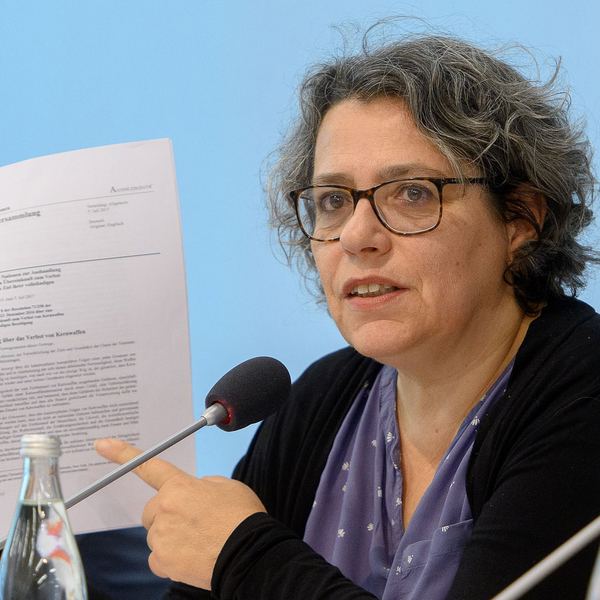Scots and Germans Make Common Cause on Nuclear Weapons


This is pretty much how it works with the US nuclear arsenal and NATO members Germany, Turkey, The Netherlands, Italy and Belgium. In what they call “nuclear sharing” the US provides these states with B61 nuclear weapons, which are designed to be delivered by aircraft. In the specious justification offered by NATO these weapons would remain under US control and so do not amount to a breach of the Nuclear Non-Proliferation Treaty (NPT) by passing nukes to other states. As with the gang analogy, there would be a two-fold benefit for the US. Historically the arrangement gave the US a nuclear weapon platform close to its perceived enemy, the Soviet Union. In fact it is doubtful if the B61s add much to the US nuclear strategy in an age of inter-continental ballistic missiles. In the present the benefit for the US is wholly political – the binding of these states to the Washington agenda.
As regards nuclear weapons it is customary to divide the 193 UN states into three categories as regards nuclear weapons . There are the nuclear-armed states (NAS) – all nine of them. Then there are nuclear umbrella states which look to their particular NAS (mainly the US) for nuclear protection. NATO members states which don’t have their own nukes fall into that category, as does Japan. The rest are the non-nuclear states. However, the reality is that Germany, Turkey, The Netherlands, Italy and Belgium are nuclear-armed states, just as our hypothetical gang bag-carriers are possessors of unlawful weapons. Apart from any other consideration the B61 ploy carries with it all the scary potential for disruption to the line of command and random catastrophic accidents.
And yet the situation is fluid. The overall bond between the US and the EU is loosening as Macron in particular ponders a fully developed European defence structure. Germany is close to decision point on whether to replace the current B61 delivery aircraft with US-made F35s, and Rolf Mützenich, leader the Social Democrats, has said that Germany should no longer “host” US nuclear weapons. Although the dominant Christian Democrats under Merkel do not agree with that, the SDP leadership stance resonates with public opinion in Germany..
Even with the B61 nations added in the NAS are still a small minority (around 7%) compared to the number of countries that don’t see nuclear weapons as providing security, but like the OCG the extreme nature of what they think it is OK to do and the lengths they are prepared to go to get what they want make them extremely dangerous. The Treaty on the Prohibition of Nuclear Weapons (TPNW) will probably come into force in 2021. Although the B61 states are unlikely to sign the TPNW and as non-signatories will not be legally bound by it, the Treaty will apply extra political, moral and practical pressure. We can hope that Germany and the other culprits will sniff the wind and also take advantage of the fact that the COVID-19 pandemic has made it obvious that preparations for war, especially nuclear war, have nothing useful to offer for our security.


In line with long-standing Global Greens support for the TPNW last year Scottish Greens successfully submitted a resolution to the European Green Group urging alignment with the Treaty at all levels of municipal and regional government – in line with the ICAN Cities Appeal. Scottish Green MSP John Finnie, who resigned from the SNP when that party ditched its long-standing opposition to NATO in 2012, articulated the common cause:
“When it comes to nuclear weapons Scots can readily identify with German people. Both nations are saddled with nuclear weapons imposed on them by others and are thus are potentially implicated in a crime against humanity. In Scotland’s case there is clear popular and parliamentary rejection of the UK’s weapons of mass destruction and it is hugely heartening to see the opposition growing in Germany also. An independent Scotland can cause the disarming the whole UK due to the near impossibility of moving the submarine berths and atomic weapon store to any other location. To complete the task Scotland must play no part in NATO’s nuclear weapon activity or place itself under any nuclear “umbrella”. Similarly we would hope that Germany, after banishing the US B61 weapons, will reject any US (or indeed European Union) nuclear weapon umbrella.”
Xanthe Hall, Co-Director and nuclear disarmament campaigner for the German affiliate of International Physicians for the Prevention of Nuclear War, said.
“It is very encouraging to hear a strong political voice from Scotland, the home of my childhood, speaking out against nuclear weapons and giving support to the critics of nuclear sharing here in Germany. John Finnie’s words are particularly significant as they come from a country where nuclear weapons are deployed, although the people of that country do not want them. That is also the case in Germany.”

If you are looking to Germany for encouragement, you need to look elsewhere!
— Several years ago, the Bundestag adopted a resolution calling for all atom bombs to be removed from Germany. What has happened since then to implement this decision? Absolutely nothing. On the contrary, on several occasions, the government has re-affirmed its commitment to NATO nuclear policy, and it has agreed to the US replacing the bombs with more modern ones.
— For decades, public opinion surveys have shown overwhelming support for getting rid of the nukes. But the vast majority of voters always vote for parties that support NATO and this policy.
What prospect of a referendum on NATO membership? It is worth remembering that in the UK, treaties (like war-making) are yet another Royal Prerogative. Indeed, nuclear weapons are incompatible with democracy, which is why fans of centralized monarchical political command-and-control favour them, whether republican or royalist. And weapons of mass destruction have no place in system of international rule of law, humanitarian norms and environmental protection.